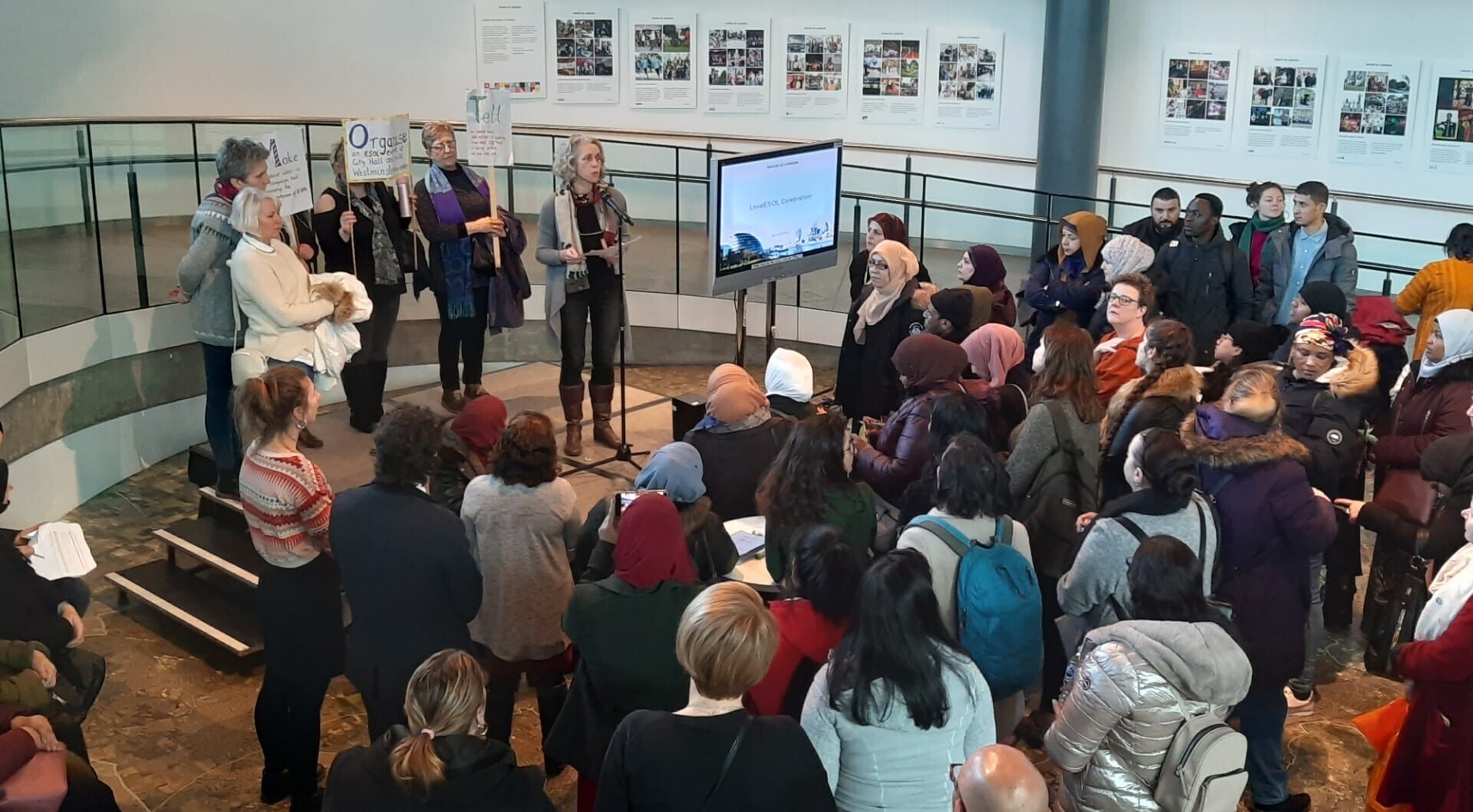
English for Action (EFA London) are influencing local leaders to listen to their views and help shape policy that directly affects them, using their collective power to influence and affect change locally.
On February 11, over 80 ESOL (English for speakers of other languages) students and teachers from English for Action and other partners from across London came together to meet with representatives from the Mayor of London’s office and the Greater London authority to discuss how ESOL could become a priority in the budget, and to voice their requests for easier access to lessons for current and prospective ESOL students.
The day began with an activity for students to voice their experiences of coming to a new country and not knowing the language, why ESOL is important to them and what barriers are in place to accessing lessons. These experiences, and thoughts, were written on paper fish and placed on a paper river down the centre of them room so everyone could see them, before being taken and read by the GLA representatives at the end of the session.
Afterwards, speeches were made in a great example of creating influence. A representative of EFA London or another partner took the stage and made their requests clear, then asked for a direct response from the GLA and Mayoral representatives. One request was a website to map ESOL lessons for people around London, which has already had the commitment of six London councils. Bringing such a well-researched request, with the weight of commitment from other local authorities behind it, carried heavy influential pressure.
In a direct dialogue, representatives from the Mayor of London’s office and the GLA then took to the stage to respond to the requests and the demands for information on what had already been done for ESOL students. The representatives assured that they shared many of the same concerns and were already looking into several of the requests made that day, including childcare during ESOL classes and are currently writing reports on guidance for tutors in order make their classes more accessible for people with children. They are also looking at encouraging businesses to create the opportunities for learning ESOL whilst at work.
The attendees then wrote their individual requests in letters which were collected in and will be read by the GLA and Mayor’s office, continuing the dialogue established that day.
Jess Walker, ESOL teacher, English for Action, said, “Access to English classes is vital for the city, it allows people to participate fully in London life. We want to work with the Mayor to make ESOL a key part of his ‘London is Open’ campaign.”
Phoebe Cullingworth, Fundraising Manager, English for Action, said, “We feel like there’s a possibility for change in policy and practise around ESOL lessons at the moment. This action today shows that ESOL students should be listened to and should be made to feel welcome in London.”
English for Action were awarded £38,360 for their ‘Language for Change’ project, which is funded through People’s Health Trust’s Active Communities programme with money raised through Health Lottery London East.
Read the case study on EFA London featured in our Annual Review here.
EFA London were also one of eight case studies by the Trust included in the Marmot Review 10 Years On, a report that examined health inequalities in England. You can read our statement on the Marmot Reviewhere and read the full review and case study here.
To read more news from the Trust, click here.
Support us, play The Health Lottery!
